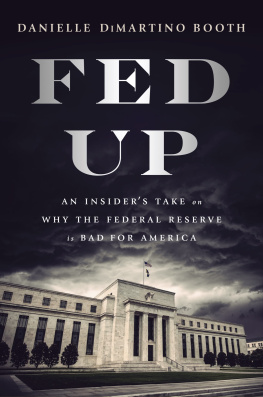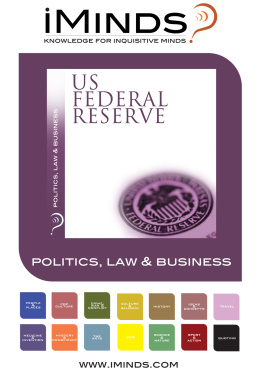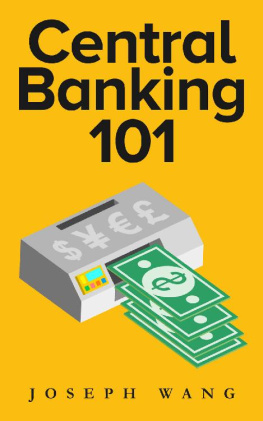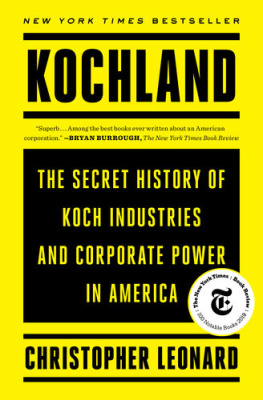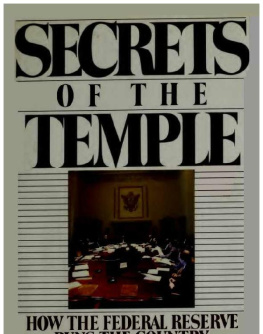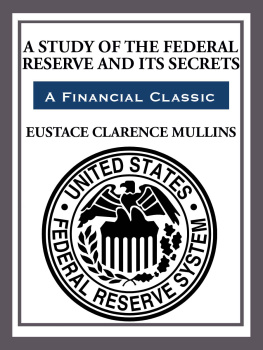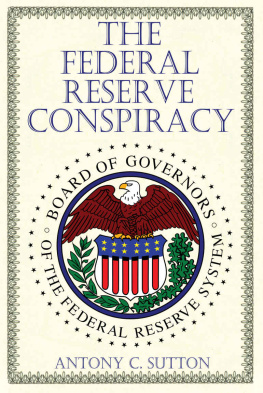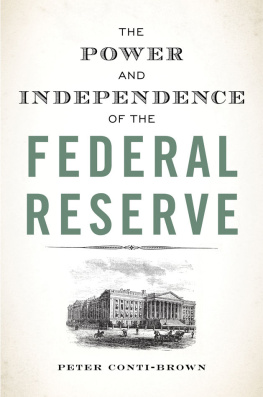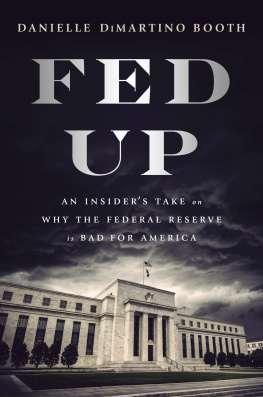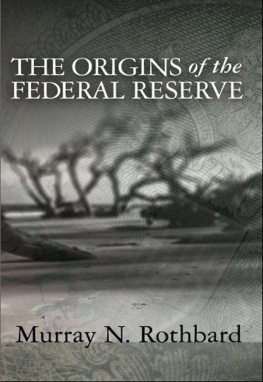DiMartino Booth - Fed up: an insiders take on why the Federal Reserve is bad for America
Here you can read online DiMartino Booth - Fed up: an insiders take on why the Federal Reserve is bad for America full text of the book (entire story) in english for free. Download pdf and epub, get meaning, cover and reviews about this ebook. City: New York, year: 2017, publisher: Penguin Publishing Group, genre: Detective and thriller. Description of the work, (preface) as well as reviews are available. Best literature library LitArk.com created for fans of good reading and offers a wide selection of genres:
Romance novel
Science fiction
Adventure
Detective
Science
History
Home and family
Prose
Art
Politics
Computer
Non-fiction
Religion
Business
Children
Humor
Choose a favorite category and find really read worthwhile books. Enjoy immersion in the world of imagination, feel the emotions of the characters or learn something new for yourself, make an fascinating discovery.
- Book:Fed up: an insiders take on why the Federal Reserve is bad for America
- Author:
- Publisher:Penguin Publishing Group
- Genre:
- Year:2017
- City:New York
- Rating:5 / 5
- Favourites:Add to favourites
- Your mark:
Fed up: an insiders take on why the Federal Reserve is bad for America: summary, description and annotation
We offer to read an annotation, description, summary or preface (depends on what the author of the book "Fed up: an insiders take on why the Federal Reserve is bad for America" wrote himself). If you haven't found the necessary information about the book — write in the comments, we will try to find it.
After correctly predicting the housing crash of 2008 and quitting her high-ranking Wall Street job, Danielle DiMartino Booth was surprised to find herself recruited as an analyst at the Federal Reserve Bank of Dallas, one of the regional centers of our complicated and widely misunderstood Federal Reserve System. She was shocked to discover just how much tunnel vision, arrogance, liberal dogma, and abuse of power drove the core policies of the Fed.
DiMartino Booth found a cabal of unelected academics who made decisions without the slightest understanding of the real world, just a slavish devotion to their theoretical models. Over the next nine years, she and her boss, Richard Fisher, tried to speak up about the dangers of Fed policies such as quantitative easing and deeply depressed interest rates. But as she puts it, In a world rendered unsafe...
DiMartino Booth: author's other books
Who wrote Fed up: an insiders take on why the Federal Reserve is bad for America? Find out the surname, the name of the author of the book and a list of all author's works by series.

